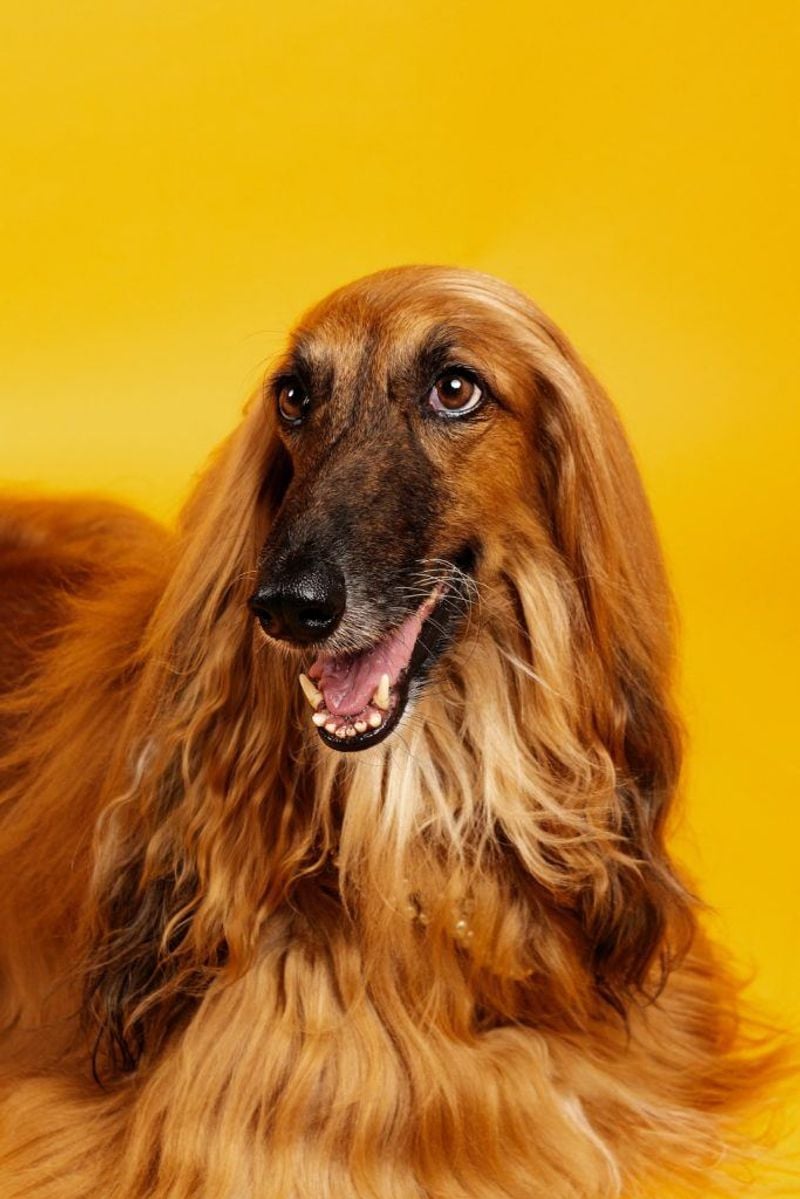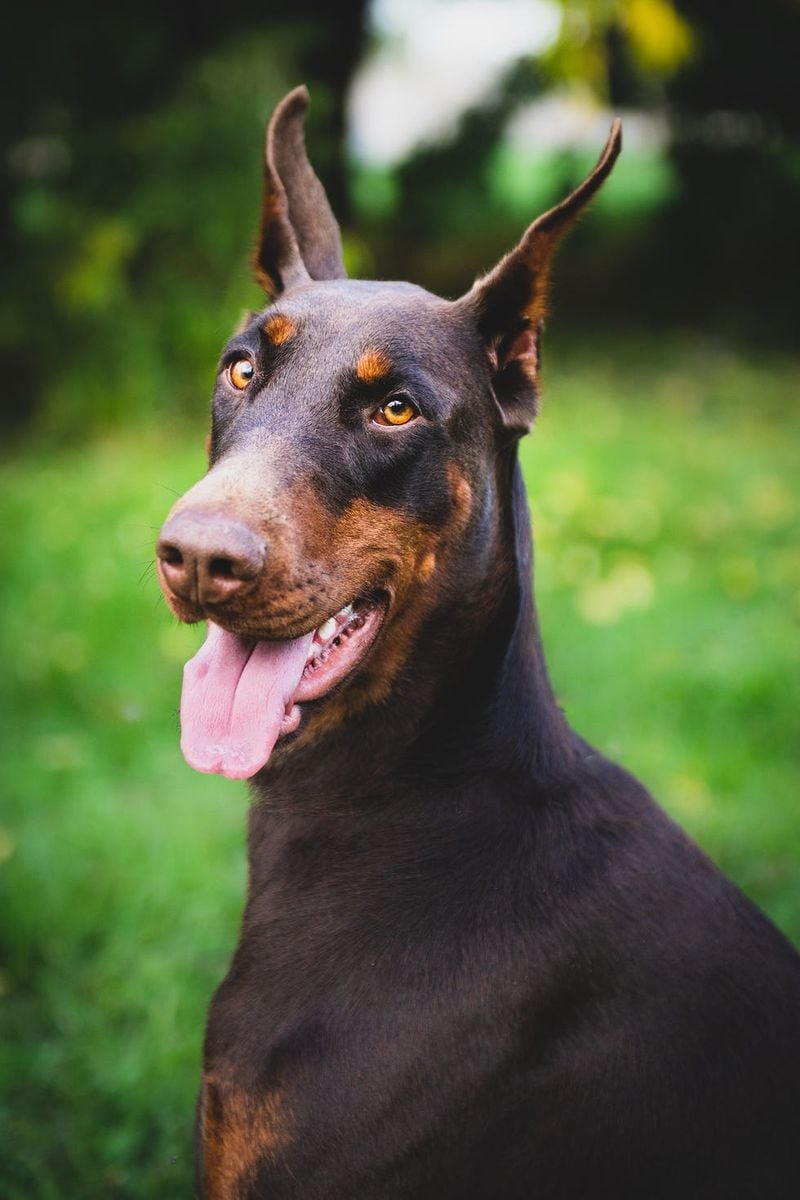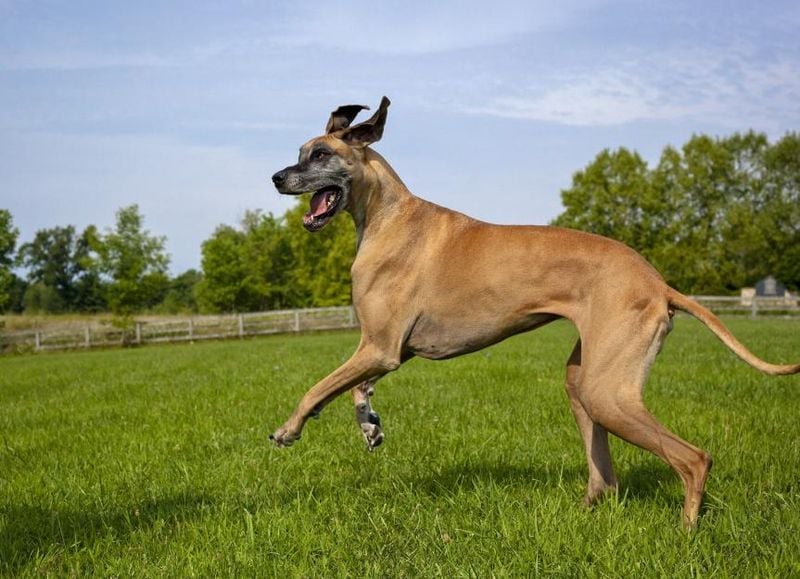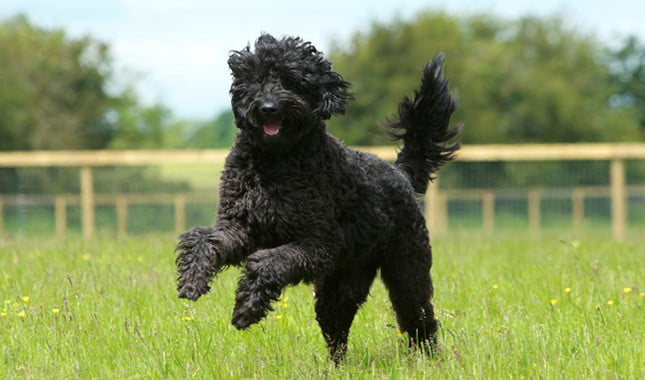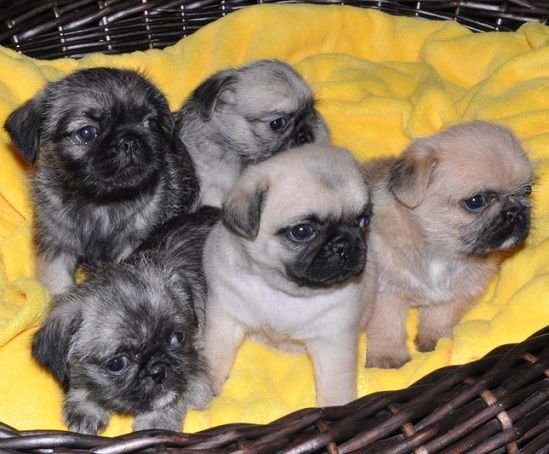These 13 Dog Breeds Aren’t Ideal for Seniors—Here’s Why
Not every dog is a perfect match for every lifestyle—especially during your golden years.
While the right canine companion can bring joy, routine, and comfort, the wrong one might add stress, noise, and more physical demands than you bargained for. As we age, priorities shift.
A calm temperament, manageable size, and easy-going nature often matter more than flashy looks or high intelligence. But some breeds, though lovable in their own right, simply don’t align well with the needs of senior dog owners.
Whether it’s boundless energy, intense grooming needs, or stubborn streaks that require constant training, certain breeds are best admired from afar.
If you’re thinking about welcoming a dog into your life—or advising a loved one—it’s worth knowing which breeds might be more trouble than they’re worth.
Here are 13 that seniors should think twice about adopting.
1. Border Collie
This breed is often described as the smartest dog on Earth—and that intelligence comes with a price. Border Collies thrive on mental stimulation and high-octane physical activity, which can be exhausting to provide if you prefer a quieter lifestyle.
They’re not the kind of dog content with a stroll around the block. They need jobs to do, problems to solve, and wide open spaces to run. Without these, they become anxious and destructive.
For seniors looking for a peaceful companion, the Border Collie’s tireless energy and need for constant engagement can quickly become overwhelming.
2. Jack Russell Terrier
Don’t let their small size fool you—Jack Russells are a whirlwind of energy packed into a compact body. These dogs were bred to hunt, and their instincts drive them to dig, chase, bark, and test boundaries daily.
They’re highly intelligent but also notoriously stubborn, making training a constant battle of wills. They can be escape artists, and their love of barking doesn’t exactly promote a tranquil home environment.
For seniors hoping for a calm lapdog, this breed can feel more like a full-time job than a companion.
3. Siberian Husky
These dogs are gorgeous, but they’re built for endurance and independence. Huskies were bred to pull sleds through snow for hours—so lounging around the house isn’t in their nature.
They’re prone to escaping fences, howling, and ignoring commands if not thoroughly trained and exercised. Their thick coats also shed heavily, adding another layer of work for seniors with mobility or energy limitations.
While affectionate, they’re not always easy to manage, especially for those who want a relaxed and low-maintenance companion.
4. Akita
Akitas are strong, proud, and fiercely loyal—but they’re not ideal for seniors. They tend to bond deeply with one person and can be suspicious or even aggressive toward strangers and other animals.
They require consistent, firm training and a confident handler to keep their protective instincts in check. Physically, they’re powerful and can be difficult to control on walks if they become reactive.
For older adults who want a dog that’s easygoing and sociable, the Akita’s intensity and aloofness may prove too demanding.
5. Dalmatian
Despite their iconic look, Dalmatians are not for the faint of heart. They’re incredibly active, often needing hours of exercise and playtime to keep them happy and calm. Without it, they can become hyperactive and destructive.
They’re also prone to health issues, especially deafness and urinary problems, which can mean more vet visits and costs.
Add in their stubborn streak and tendency to guard their space, and you’ve got a dog that can challenge even experienced owners.
Not the best fit for someone seeking companionship over constant management.
6. Chow Chow
The Chow Chow looks like a teddy bear but behaves more like a cat—aloof, independent, and often uninterested in affection. While that might appeal to some, their strong-willed nature and occasional aggression can be risky.
They’re not always predictable with strangers or children, and they need early, ongoing socialization. On top of that, their thick double coat requires frequent grooming to avoid matting and overheating.
They may look regal, but for seniors looking for a relaxed and cuddly pup, a Chow Chow may fall short.
7. Belgian Malinois
This breed is the Navy SEAL of the dog world—intelligent, fast, strong, and endlessly driven. Belgian Malinois dogs thrive in police and military work for good reason, but they’re not suitable for a laid-back lifestyle.
Without intense training, structure, and activity, they can quickly become anxious or aggressive. Their boundless energy and sharp instincts can be overwhelming for seniors who simply want a companion to relax with.
This isn’t a breed to grow old with—it’s a breed to train like a professional.
8. Weimaraner
Weimaraners are sleek, athletic, and clingy—three traits that don’t always pair well with older owners. They suffer from separation anxiety and demand constant companionship, which can be emotionally draining.
Physically, they’re large and strong, and they pull on leashes if not well-trained. Their high prey drive makes them a hazard around cats or small pets. While undeniably affectionate, their neediness and strength can make everyday care a challenge.
If you’re not up for vigorous exercise and constant attention, this isn’t the breed for you.
9. Afghan Hound
Known for their long, flowing coats and dignified demeanor, Afghan Hounds are beautiful—but beauty takes work. Their grooming needs are intensive, with hair that mats easily and requires regular brushing and trimming.
They’re also emotionally distant and hard to train, often appearing indifferent to commands. Their independent streak makes them unreliable off-leash, and they can be skittish in unfamiliar settings.
Seniors hoping for a warm, eager-to-please lapdog will likely be disappointed by this aloof aristocrat.
10. Australian Cattle Dog (Blue/Red Heeler)
These dogs were bred to herd livestock across rough terrain, so you can imagine how much energy they pack into their compact bodies. Australian Cattle Dogs are alert, tireless, and happiest when working.
They often try to herd children, adults, or other pets—nipping included. Their intelligence is off the charts, but it comes with a rebellious edge that requires consistent, confident training.
For seniors wanting peace and companionship, this breed is likely to feel more like a personal trainer than a pet.
11. Doberman Pinscher
Dobermans are loyal and sleek, but they’re not low-maintenance. They require strong leadership, socialization, and regular physical and mental stimulation to keep their protective instincts in check.
They bond deeply with their family but can become anxious if not given a clear job or direction. Their size and power can be difficult to manage on walks, especially if they react to strangers or animals.
For seniors who want a peaceful life, a Doberman’s intensity and training needs can be too much to handle.
12. Great Dane
Gentle and sweet though they may be, Great Danes present some very real challenges. Their enormous size makes daily tasks like walking, feeding, and even bathing much harder than with smaller breeds.
They’re also prone to joint problems, bloat, and other health issues, which can mean frequent and expensive vet visits. Their short lifespan is another emotional hurdle, often only reaching 7–10 years.
For seniors looking for a long-term, manageable companion, Great Danes may be more heartbreak than harmony.
13. Beagle
Beagles are adorable, with their floppy ears and expressive eyes, but they’re also one of the most stubborn breeds out there. Bred to follow scents, they often “turn off” their ears once they catch a whiff of something interesting.
They’re escape artists, howlers, and prone to separation anxiety. And despite their small size, they need more exercise than you might expect. Left bored, they can become destructive chewers or diggers.
While they’re affectionate and charming, their stubbornness and vocal tendencies aren’t ideal for a quiet home.









